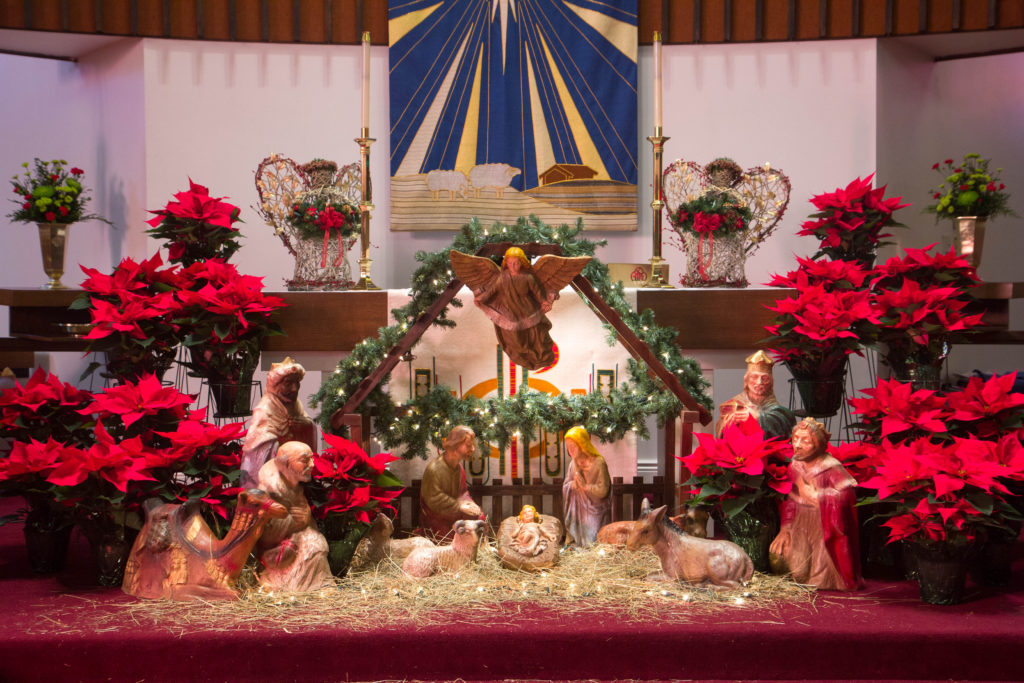Then Jesus came from Galilee to John at the Jordan, to be baptized by him. John would have prevented him, saying, “I need to be baptized by you, and do you come to me?” But Jesus answered him, “Let it be so now; for it is proper for us in this way to fulfill all righteousness.” Then he consented. And when Jesus had been baptized, just as he came up from the water, suddenly the heavens were opened to him and he saw the Spirit of God descending like a dove and alighting on him. And a voice from heaven said, “This is my Son, the Beloved, with whom I am well pleased.”
Matthew 3:13-17
My sermon from Epiphany Sunday (January 8, 2017) on Matthew 3:13-17.
******
Have you ever heard of a guy named Ambrose? We might be familiar with one, a gentleman named Ambrose Burnside who was a general during the American Civil War. His claim to fame is the legacy he left to men’s fashion, specifically the bits of hair that extend past the ears and down the cheeks but end before a proper beard is formed. He’s the guy who invented sideburns. But there’s another Ambrose I’m thinking of today and he lived in Italy more than 1600 years ago. This Ambrose was born around 340 in what is now Germany. His father was a Roman official, serving the empire, and his mother was a pious Christian. Ambrose eventually followed in his father’s footsteps, heading to Rome for his education, and was appointed a governor in Northern Italy. He was well liked, popular, and known for his generosity. He was the kind of person we might want as a politician but God had other plans for him. Around the year 374, the city of Milan was in turmoil. The bishop of the city had recently died and two different theological factions were trying to have their guy named as bishop. Ambrose was worried that this debate might turn violent so he went to the city, trying to mediate the crisis. But when he walked into the church where the debate was being held, someone in the crowd said, “Hey! Let’s make Ambrose bishop.” And that’s all it took. He was elected bishop of Milan on the spot. But this was a bit of a problem because Ambrose had no theological training. He wasn’t a pastor. He wasn’t a priest. And even though his family was Christian, he came from an era when many would wait to be baptized so when he was elected bishop, he wasn’t even baptized. Now, Ambrose tried to get the crowd to pick someone else and he even tried to lay low at a friend’s house for awhile. But once the Roman emperor praised his election as bishop, he had no choice but to accept the job. So he was baptized, ordained, and made a bishop.
Now, from the sermons I’ve read by Ambrose, I’ve always found him to be a preacher focused on experiences because, I think, he kept having experiences he never expected. Being a bishop wasn’t on his radar but, before he knew it, he was overseeing pastors, priests, monasteries, convents, and churches located all around Milan. His schedule might include preaching at the city church in the morning and then arguing with the Roman Emperor and his family in the afternoon. Ambrose, in his sermons, lets his faith and his experiences interact, mingle, and mix up – because his faith grew when he saw Jesus at work in the world around him. And one place where he saw faith and experience interact in a very vivid and meaningful way – was in baptism.
Now, in the year 391, Ambrose delivered a series of sermons to a group of newly baptized Christians. For two weeks after their baptism, everyone would go to church early in the morning, before work and school. And it was in those sermons that Ambrose unpacked baptism for these new Christians. Now, before they were baptized, they didn’t really have a clue about what their baptism service would be like. At this time in the church, the rituals and liturgy were a little more…secret. Only the baptized were allowed to even see holy communion being distributed and baptism was only done at certain times of the year, usually at the vigil the night before Easter morning. So the people being baptized would learn about Jesus but they didn’t know what the baptism event would actually be like. The church, I think, wanted these Christians to first experience baptism; to experience every little bit of it – from listening to the words in the prayers to smelling the oil that anointed their entire body to the feeling of water as it was poured over them. The physicality of baptism was important but their thoughts and feelings during the baptism mattered too. If they felt sacred or confused, joyous or doubting – everything they thought and everything they felt was accepted as part of their baptism experience. Even thoughts and feelings we think we shouldn’t have, like feeling parts of the ceremony were a little…silly…and feeling surprised and almost shocked that the baptism itself, with only a little water, felt so…basic…. no reaction to baptism was considered off limits or irreverent. For Ambrose, to talk about baptism requires the experience of baptism because with the experience, comes the questions, and with the questions, comes the dwelling and living with God.
In our reading from Matthew today, there are so many questions we could ask. Why is John by the Jordan? Why is Jesus there too? What kind of baptism is John offering and how does that baptism differ from my own? We could wonder why Jesus, God’s Son, a member of the trinity and completely sinless, needs to get baptized? Jesus’ baptism brings a lot of questions and these are all good questions, the right kind of questions, questions we should ask and let them fill the air even if we can’t answer them fully. But I wonder, for today at least, if we can’t notice, instead, what Jesus does. He has an experience. He hears the words that John says. Jesus smells the earth and the grass and the brush and everything that is around him. He feels not only the water on his body but he might even shiver because it is cold. And then, as he stands up after his baptism, with water dripping from his hair, down his cheeks and off his chin, that’s when Matthews says that everyone gathered around John hears that this Jesus….is beloved. Jesus, in today’s text, doesn’t really focus on the question. He does, however, create space for them. He does let John wonder and ask. But Jesus decides to have this experience because Jesus is here to be that God-with-us who isn’t here only for our thoughts; Jesus is here to have experiences – because that’s what we have – and there’s no experience that Jesus will not walk with us through. Jesus isn’t here to only share words. Jesus is here to live because our lives have value and mean something – to God.
Now, even as a pastor, I can’t imagine preaching every morning, before work and school, for two whole weeks to the newly baptized like Ambrose did. But Ambrose, like us, lived his life as a series of experiences. And the God who called him to be bishop before he was even baptized is the same God who calls us to see God in all our experiences too. Because Jesus, like us, lives. His skin feels touch; his eyes shed tears; he sometimes gets angry, or happy, and sometimes he just need to get away from everyone, to rest and recharge. Yet, through it all, Jesus loves. He listens; he heals; and he cares. The Jesus who experienced baptism is the same Jesus who promises to not run away from any of our experiences. He is right there – in them – because he knows that no matter what our experiences are, the God who created everything has decided that me, and you, and this entire world – is loved.
Amen.
Podcast: Play in new window | Download


